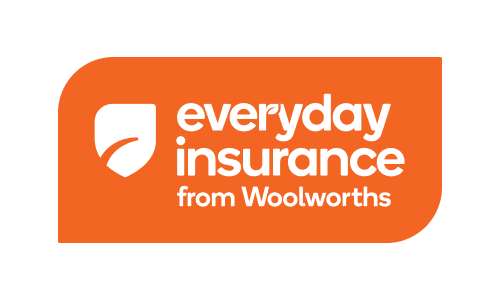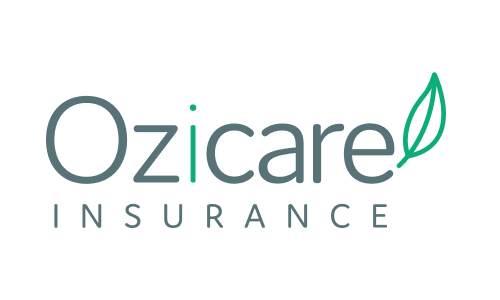








We do not compare all brands in the market or all products offered by all brands. At times certain brands or products may not be available or offered to you. Learn more about how our comparison service works.
What’s the difference between types of car insurance?
We’ve compiled this table of benefits to help you see the differences between the levels of cover. This information should be used as a guide only, as different policies and insurers might offer varying coverage.
Comprehensive
Usually the highest level of cover available, it includes protection for your car and also covers damage to other people’s vehicles and property.
- Legal liability for third party vehicle and property damage
- Damage to your car in an accident
- Loss or damage to your car from fire and theft
- Storm damage to your car
- New car replacement
Third Party Fire and Theft
Generally covers damage you cause to other people’s vehicles and property. It also includes protection for your car for fire and theft.
- Legal liability for third party vehicle and property damage
- Damage to your car by an uninsured driver
- Loss or damage to your car from fire and theft
- Storm damage to your car
- New car replacement
Third Party Property Damage
It provides cover for damage you cause to other people’s vehicles and property. It only covers your car if it’s damaged by an uninsured vehicle.
- Legal liability for third party vehicle and property damage
- Damage to your car by an uninsured driver
- Loss or damage to your car from fire and theft
- Storm damage to your car
- New car replacement
Comprehensive
Usually the highest level of cover available, it includes protection for your car and also covers damage to other people’s vehicles and property.
- Roadside assistance
- Car hire after an accident
- Windscreen excess cover
- Choice of repairer
Third Party Fire and Theft
Generally covers damage you cause to other people’s vehicles and property. It also includes protection for your car for fire and theft.
- Roadside assistance
- Car hire after an accident (fire and theft only)
- Windscreen excess cover
- Choice of repairer
Third Party Property Damage
It provides cover for damage you cause to other people’s vehicles and property. It only covers your car if it’s damaged by an uninsured vehicle.
- Roadside assistance
- Car hire after an accident
- Windscreen excess cover
- Choice of repairer
Top 3 things to know about car insurance in Canberra and the ACT
It pays to compare
Compare quotes in minutes and start saving today.
Simple to use
Get started by answering a few quick questions to help us understand your needs.
Compare & save
Save time and money by easily comparing options from a range of providers side-by-side.
Switching is easy
Follow a few easy steps online to switch to a new deal that suits you and your budget.

Why compare with us?
Our smart comparison technology is trusted, free, safe and secure.

We believe the best decisions start with a comparison.
We’re proud to have helped millions of Aussies look for a better deal.


A guide to comparing car insurance in Canberra and the ACT
Updated 19 May 2025

Kochie’s top tips for drivers in the ACT
Looking for great value car cover in the ACT? Our Economic Director David Koch shares our expert tips to help you save.



Driving around The Capital is a real delight. Whether you’re museum hopping or scooting to Parliament House – there’s so much to explore. But car accidents can happen in the most unlikely places. It’s vital to make sure you’ve got the right cover and compare your options to make sure you’re getting bang for your buck.
Drivers in the ACT looking for financial protection against damage to their vehicle have three options: Third Party Property Damage will cover you for damage you cause to other people’s vehicles and property and, in limited circumstances, your own vehicle. Third Party Fire & Theft adds cover for fire and theft on top of that. And comprehensive car insurance covers damage to your car and more, for the ultimate piece of mind. But finding suitable cover doesn’t mean being taken for a ride.
Compare the Market has these tips to help you save. Shift your excess. If you’re a safe driver, you could pay less on your premium if you chose to pay a higher excess in the event of a claim. Update your details.
Small changes like parking your car in a garage overnight or restricting your policy to drivers aged 25 and over could lower your premiums. If you’re now driving less because you’re working from home, see if a low kilometre policy could be right for you. Pay your way. Pay fortnightly, monthly or annually to suit your budget and cash flow but remember paying in instalments can be more expensive than paying annually.
And – most importantly – compare your options! It’s the best way to make sure you’re getting good value for your money. Start your journey today with Compare the Market.
Types of cover available for drivers in Canberra and the ACT
Comprehensive
Comprehensive car insurance covers accidental damage to both your vehicle and a third party’s property, as well as fire damage, theft and damage from attempted theft. Depending on the circumstances, comprehensive cover may also offer financial protection for you if your car is completely written off.
Third Party Property Damage
Third Party Property Damage (TPPD) insurance covers damage you cause to other people’s property and vehicles with your car. Typically, this level of car insurance doesn’t cover your vehicle for at-fault claims. Depending on your insurer, TPPD may have a limited amount of cover for your vehicle if it’s damaged by an uninsured driver.
Third Party Fire and Theft
Third Party Fire and Theft (TPFT) insurance operates similarly to TPPD policies, with additional cover for your vehicle if it’s stolen or damaged/destroyed in a fire. However, your vehicle’s repair costs aren’t covered if you’re at fault in a car accident.
Motor Accident Injuries (MAI) insurance
MAI insurance (known as CTP or Green Slip in other states) is mandatory for driving in the ACT and around Australia. It covers your liability if you cause injury or death to someone else in a motor vehicle accident involving your vehicle. In the ACT, you have the option of choosing from different MAI insurance providers.
What is the best car insurance to get in Canberra and the ACT?
Everyone’s needs are different, so the best car insurance for you might not suit someone else. Vehicles registered in the ACT must have MAI insurance, but it may be worth considering additional car insurance options to cover vehicle and property damage.
Comprehensive car insurance or TPFT could be car insurance options worth considering if you want the repair or replacement costs to your own vehicle to be covered. Comprehensive covers more insured events than TPFT but also has higher premiums. TPFT only covers your car for fire damage or if it’s stolen, and generally won’t cover collisions.
Conversely, TPPD is worth looking at if you’re looking for a more basic, cost-effective car insurance option. It generally only covers damages to other people’s vehicles and property caused by your car, unless your insurer agrees to cover your car when it’s damaged by an uninsured driver.
The table below is a summary of the cover each level of car insurance provides.
| Insurance type | Damage to your car | Damage to another person’s car or property | Damage or loss to your car caused by theft and fire | Injuries or death to other people in an at-fault accident |
|---|---|---|---|---|
| Comprehensive | ✓ | ✓ | ✓ | ✗ |
| Third Party Fire and Theft | ✗ | ✓ | ✓ | ✗ |
| Third Party Property Damage | ✗ | ✓ | ✗ | ✗ |
| MAI (or CTP) | ✗ | ✗ | ✗ | ✓ |
| Always refer to your relevant Product Disclosure Statement (PDS) for full details of inclusions, exclusions and policy limits, as well as terms and conditions (T&Cs). The Target Market Determination (TMD) could also help you figure out if the product is right for your personal circumstances. | ||||
Premiums, excesses and sum insured
How much is car insurance in Canberra and the ACT?
Insurers may consider several factors when , including:
- Your vehicle’s age, make, model and market value
- Your claims and driving history
- Where you park your car overnight and during the day (e.g. garage or street)
- Any modifications you’ve made to your car
- Your home address in the ACT.
How can I get cheap car insurance in Canberra and the ACT?
Some ways you could reduce your car insurance premiums may include:
- Opting to pay annual premiums instead of monthly instalments
- Parking in a garage instead of on the street
- Putting an age restriction on your policy
Selecting a higher excess on your policy may also lower your premiums. However, always consider if this is an amount you can pay if you need to make a car insurance claim.
Does moving house within Canberra and the ACT affect my car insurance?
The Canberra or ACT suburb you reside in can affect the price of your premiums due to the level of risk and insurance claims in the area. Furthermore, where you park your car overnight could also affect your premium depending on your insurer. For example, if you park indoors in a secure garage, your premium may reflect the lower likelihood of someone stealing your car.
It’s wise to contact your insurer when you plan on moving, both to notify them of your new address and to understand if it will affect your premium.
Can I insure my car for an agreed value?
Some policies allow you to insure the car for an agreed value. Having an agreed value policy means you’re likely to receive this amount you’ve chosen to be covered for if your vehicle is written off after an insured event (like a car accident).
The agreed value may change at the time of renewal, your insurance provider will list the value on your renewal notice.
Will I need to pay an excess to make a claim?
In most cases, you’ll pay a basic excess when you submit a car insurance claim. However, you may also need to pay additional excesses depending on the circumstances of the incident.
For example, if someone who isn’t listed on the policy was driving your vehicle when an accident happened, you may incur an unlisted driver excess as well. Additionally, if the driver was under a certain age, they may face a young driver excess if that’s a part of the policy.
Inclusions and exclusions
What features do ACT drivers look for in a comprehensive car insurance policy?
 These features may be available to drivers as either standard inclusions or optional extras (for an additional expense):
These features may be available to drivers as either standard inclusions or optional extras (for an additional expense):
- Towing after an accident. You can have your vehicle towed up to a certain kilometre radius from the incident.
- Hire car after an accident. If your vehicle is damaged in an accident, you may be eligible for a hire car until your vehicle is repaired or replaced, or you’ve reached the limit listed in your PDS (whichever comes first).
- Key and remote replacements. Your policy may cover the cost of replacement keys and remotes if yours are lost or stolen.
- Windscreen cover. You may have a reduced excess when making a claim for window glass replacement or the insurer may waive the excess for your first window glass replacement claim.
- Roadside assistance. A service that helps you get back on the road if your car breaks down.
These features have limits that will vary between insurers. Always read the relevant PDS for more information.
If my car is written off in an accident, am I covered?
 It depends on your level of cover. Comprehensive car insurance may cover your vehicle if it’s written off:
It depends on your level of cover. Comprehensive car insurance may cover your vehicle if it’s written off:
- In a car accident,
- By a weather event (e.g. storm or hail)
- From fire damage
- During a theft.
Some comprehensive policies may also have a new car replacement benefit. Typically, if you’re the first owner of a car, you may get a new one to replace it if it’s written off within a certain:
- Time frame (e.g. 2 years)
- Number of kilometres driven (g. 40,000km).
Will car insurance cover my caravan?
Some comprehensive car insurance policies may have a small amount of cover for damages to a caravan or trailer when it’s attached to your car. However, most car insurance policies only apply to your vehicle. The exact details of what’s covered will be in your PDS.
Does car insurance have any exclusions?
Some common exclusions shared across the different products and levels of cover include:
- Deliberate and wilful damage
- Being intoxicated at the time of the incident
- Normal wear and tear
- Illegal actions (such as too many people in the car or an unlicensed driver behind the wheel)
- Unapproved car modifications.
Compare car insurance quotes online
Looking for car insurance for your motor vehicle in the ACT? Our comparison service can provide quotes from different providers in just minutes. You’ll just need to provide a few details, such as:
- Basic car details such as car make and model can entered manually or pre-filled if you insert your registration details
- Information about you including your address, licence type and how you use the car (e.g. private or business use)
- Your choice of car insurance from comprehensive, TPFT and TPPD
- Advanced car details including if your vehicle has existing hail damage or modifications.
Meet our car insurance expert, Adrian Taylor
As a General Insurance expert with over 13 years’ experience in financial services, Adrian Taylor is passionate about demystifying car insurance for consumers, so they have a better understanding of what they’re covered for. Adrian’s goal is to make more information available from more insurers, to make it easier to compare and save.

